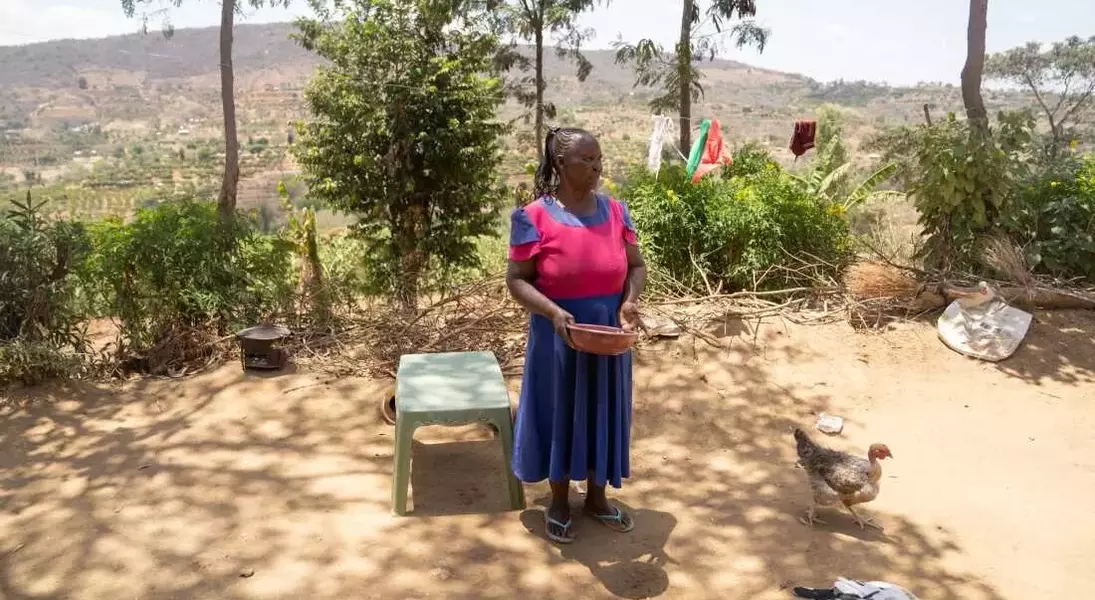
The United Nations has made a significant commitment to tackle dementia, issuing its first-ever political declaration on the condition. This landmark decision seeks to raise dementia's profile on the global health stage, particularly in developing nations where it often goes unrecognized. The declaration is anticipated to spur concrete actions and allocate vital resources for the millions living with dementia and their families, who frequently face immense challenges and stigma.
United Nations Addresses Dementia: A New Era for Global Health Policy
In a momentous announcement on September 25, 2025, during the U.N. General Assembly in New York, global leaders unveiled a comprehensive strategy to combat an array of health challenges, including mental health conditions and non-communicable diseases. For the first time in history, this significant political declaration explicitly acknowledges dementia, marking a pivotal shift in international health policy.
Paola Barbarino, the Chief Executive Officer of Alzheimer's Disease International, an organization representing 105 countries, hailed this as an “epoch-making” and “transformative” occasion. She highlighted the profound importance of including dementia, particularly for low-income countries where awareness and acceptance of the condition have historically lagged. Even in affluent nations, effective strategies for delaying dementia's onset and providing adequate support for affected families remain formidable hurdles.
While the World Health Organization (WHO) previously introduced a global action plan for dementia in 2017, the condition has often been marginalized in broader health discussions and policy frameworks. This new U.N. declaration aims to rectify this oversight. A statement from WHO to NPR emphasized that the 2025 declaration signifies a crucial milestone, committing to enhance access to services for the estimated 57 million individuals worldwide living with dementia.
Ms. Barbarino, a tireless advocate for dementia awareness, shared her insights on the declaration's significance and future implications. She underscored that dementia represents one of the most pressing health and care crises of our era, with its prevalence expected to surge as the global population ages. She cited recent data, noting that dementia has emerged as a leading cause of death in countries like Australia, the United Kingdom, the Netherlands, and Finland. This alarming trend underscores the urgent need for global recognition and concerted action.
The inclusion of dementia in the U.N. declaration is the culmination of nearly two years of dedicated effort, driven by a growing understanding that previous mortality data often overlooked those over 70, a demographic most susceptible to dementia. Advocates meticulously gathered evidence, including publishing an article in Nature Review Neurology, to demonstrate that dementia is projected to become the third leading cause of death globally by 2040.
For high-income countries, this declaration reinforces existing efforts to reduce dementia risk factors, such as promoting healthy lifestyles and managing cardiovascular health. However, its impact on low-income countries is potentially transformative. These nations often grapple with a lack of awareness, insufficient infrastructure, limited diagnostic capabilities, and a scarcity of medical professionals specializing in dementia. The declaration provides a powerful mandate for governments to address this societal challenge comprehensively, integrating dementia care into their healthcare systems and allocating necessary funding.
The declaration also seeks to alleviate the profound distress experienced by individuals and families grappling with dementia. Many caregivers report social isolation and a lack of support following a diagnosis. This U.N. initiative empowers them to advocate for greater recognition and resources, asserting dementia's status as a major non-communicable disease.
However, Ms. Barbarino cautioned that the declaration is merely a first step. The real challenge lies in its implementation. Ensuring that governments worldwide translate these commitments into tangible public health campaigns and integrated care systems will require sustained effort, potentially spanning years, if not decades. The ultimate goal is to transform this critical document into meaningful change for those whose lives are touched by dementia.
This groundbreaking U.N. declaration on dementia represents a critical juncture, finally bringing a long-neglected global health crisis into the spotlight. It offers a beacon of hope for millions, compelling nations to confront the burgeoning challenge of dementia with concerted action, resources, and compassion. The path forward will undoubtedly be arduous, demanding persistent advocacy and unwavering commitment from governments and civil society alike. However, the sheer act of formal recognition by the United Nations provides an unprecedented foundation upon which a more supportive and inclusive future for individuals with dementia and their caregivers can be built.
